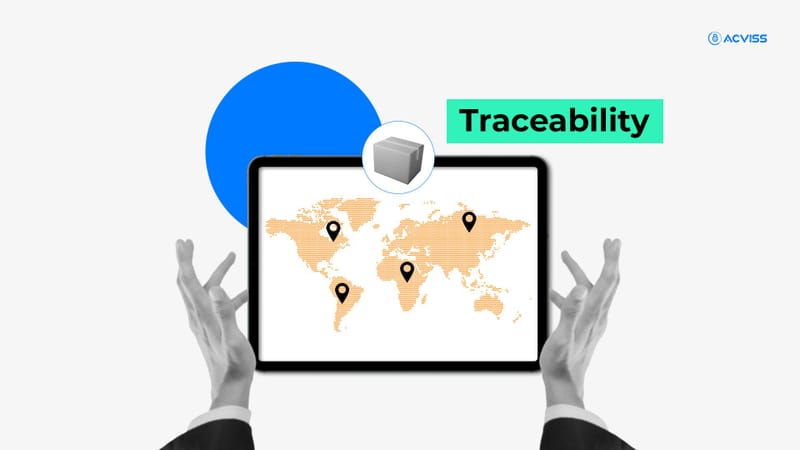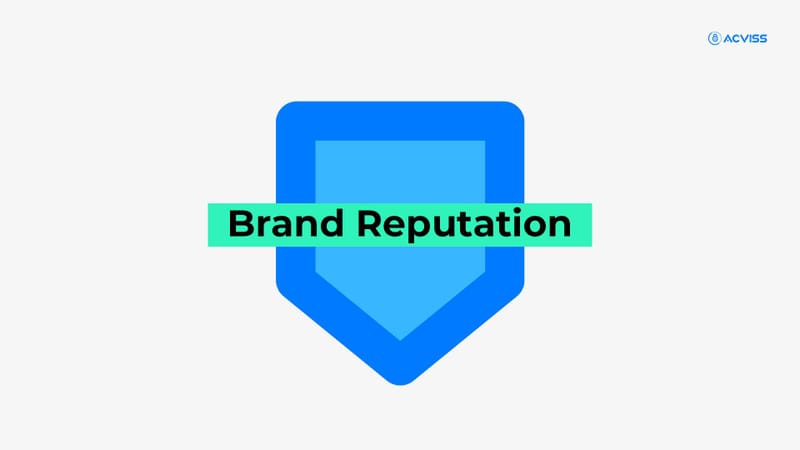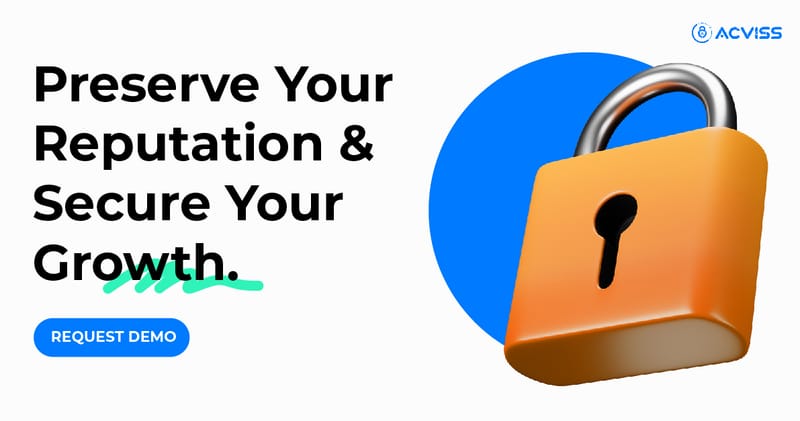The Critical Role of Traceability in EUDR Compliance
The modern world and consumers are more woke nowadays. The world is getting more aware of environmental issues and leaning towards sustainable alternatives. Regulations like the European Union Deforestation Regulation (EUDR) are like the fuel to this fire. EUDR regulation is an initiative by the EU to ensure that products entering the European market are free from deforestation and legal violations. Although this is just by the EU notion and for the European market, the ripple effect of EUDR regulation is not limited to its boundaries. As a result, all the businesses operating in the European markets, like local farmers or producers or exporters supplying to the European markets, like coffee exporters, etc., have to be more prepared and must have very strict supply chain management, to continue their business in the market. In this context, traceability plays a crucial role in helping businesses comply with EUDR regulations by providing them with a transparent and trusted way to track and trace products throughout their supply chains.
What is EUDR?
The European Union Deforestation Regulation (EUDR) is a set of rules by the EU nation that is an initiative towards global sustainability and to prevent deforestation linked to products sold within the European market. It focuses on ensuring that commodities like soy, coffee, cocoa, palm oil, timber, cattle, and rubber, as well as products made from these commodities, do not originate from deforested lands. The EUDR regulation will be fully enforced on December 30, 2024, for large companies, and on June 30, 2025, for small businesses.
As per the EUDR regulations, companies selling these commodities in the European market must prove that their products are not associated with deforestation and are completely legal. This includes providing detailed documentation and traceability information that track and trace the product's journey from origin to the final consumer.
What is Traceability?
Traceability is the ability to track and trace the history, location, and movement of a product through every stage of its supply chain. It involves recording and maintaining data at each step of production, processing, and distribution. If seen as per the scope of EUDR regulation, traceability ensures that every product entering the European market can be traced back to its source. This verifies that it complies with the regulation's requirements.
Let's take coffee exporters as an example. Having effective traceability will allow the coffee exporter to track and trace everything from the farm to the customer's cup. This includes:
- Location of the land from which the coffee beans have been cultivated
- The warehouse that they were stored in
- Refining and powder-making process
- Packaging and warehousing
- Transportation from warehouse to factory, factory to customs and customs to the end distributor or retailer
- Then, till the bottle is opened
Traceability is applicable across various industries, including agriculture, where it helps manage supply chains, ensures food safety, and supports sustainability efforts. For businesses, traceability is essential not only for regulatory compliance but also for managing risks, ensuring transparency, and protecting their brand reputation, which are all very important aspects of complying with the EUDR regulation while submitting the due diligence statement (DDS).
How Does Traceability Work?
Traceability in the supply chain works by systematically recording information at every stage of a product's journey. Here's how it typically functions:
- Data Collection: At the beginning of the supply chain, data is collected on the product's origin, including information about the land where it was produced, the conditions of production, and any certifications the producer holds.
- Tracking and Recording: As the product moves through the supply chain—from raw material to finished product—each step is tracked and recorded. This might include processing, packaging, transportation, and storage.
- Technology Integration: Advanced technologies such as blockchain, GIS (Geographic Information Systems), and satellite imagery are often used to enhance traceability. Blockchain, for example, provides an immutable record of every transaction, making it impossible to alter the traceability data.
- Verification and Reporting: Throughout the supply chain, traceability systems ensure that all data is accurate and up-to-date. This data is then compiled into reports that can be audited to prove compliance with regulations like EUDR.
- Transparency: Finally, traceability provides transparency, allowing consumers and regulators to verify the origins of a product and its compliance with sustainability and legal standards.
Why is Traceability Important in EUDR?
Traceability is a cornerstone of EUDR compliance. Let's recap the EUDR regulation requirement. The commodities and products that are under the scope of the EUDR regulation must be from non-forested land, should be stored separately, and should be transported separately; the business owner should have all the data recording of the entire supply chain, the supplier should take necessary actions for risk assessment and mitigation of risk, and they have to utilise all these to make and submit the due diligence statement (DDS). Let's have a look at all of these piece by piece to understand why traceability is critical for EUDR regulation compliance.
Ensuring Compliance
EUDR is strict about the origin of commodities. It requires businesses to prove that their products come from non-deforested land. But how can companies be absolutely certain about the land's status? This is where traceability systems come in. Advanced tools like Origin by Acviss use Geographic Information Systems (GIS) to pinpoint the exact location of the sourcing land. By doing so, they confirm whether the commodity meets EUDR guidelines. For instance, if you're a coffee exporter, you need to demonstrate that your beans aren't linked to deforestation. Traceability systems track and trace every detail—from the farm where the coffee is grown to the point it reaches the consumer.
Risk Management
In any supply chain, risks can crop up at various stages. What if a batch of your product is traced back to recently deforested land? Without traceability, this could go unnoticed, leading to severe penalties and loss of market access. Traceability systems act as an early warning mechanism, helping businesses identify and address such risks before they spiral out of control. For example, a traceability system might flag a shipment of timber that doesn't have the necessary certification. This will allow the company to take corrective action before the product hits the market. This proactive approach not only safeguards compliance but also minimises financial risks.
Transparency and Accountability
Today's consumers are more conscious than ever about the origins of the products they purchase. They want to know where their coffee, cocoa, or timber comes from and whether it's been sourced ethically. Traceability offers companies a way to meet these demands by providing data on product origins and sustainability practices. For instance, using a platform like Origin by Acviss, a company can track and trace every aspect and share detailed information about the entire journey of a product—from farm to table. It uses a blockchain system, making it more trustworthy as it is difficult for anyone, including the business owners themselves, to pamper with the data. This transparency builds customer trust, which makes them more likely to support brands that prioritise ethical practices and sustainability.
Supporting Sustainability
Sustainability isn't just a buzzword; it's a critical requirement under EUDR. The EUDR regulation aims to protect forests and promote sustainable land use. Traceability plays a key role in tracking a product's entire lifecycle, from raw material to finished goods. Traceability systems help ensure that every step in the process meets sustainability standards. For instance, if you're sourcing palm oil, traceability systems can verify that it's produced without contributing to deforestation. This not only helps in complying with EUDR but also aligns your business with global sustainability goals.
Protecting Brand Reputation
It's the era of social media, and brand reputation can be a company's most valuable asset or biggest liability. Brands are more likely to win consumer trust and loyalty if they can demonstrate their commitment to sustainability through robust traceability. On the other hand, failing to implement traceability can lead to associations with environmental harm, damaging your brand's reputation and leading to financial losses. Imagine a scenario where a competitor uses traceability to prove their products are sustainably sourced while you cannot; this could be the deciding factor for consumers when choosing between brands.
Best Practices for Achieving Traceability
To effectively implement traceability and comply with EUDR, businesses should follow these best practices:
- Collaborate with Suppliers: Work closely with suppliers to maintain accurate records at every stage of the supply chain. This ensures that all data is complete and reliable, making it easier to trace products back to their origins.
- Use Digital Platforms: Leverage digital platforms and technologies like blockchain to track products in real-time. These platforms provide a secure and transparent way to record traceability data, reducing the risk of errors or fraud.
- Regular Audits: Conduct regular audits of your supply chain to identify and mitigate any risks. This helps ensure that all products comply with EUDR requirements and that any issues are addressed promptly.
- Invest in Technology: Advanced technologies like satellite imagery, GIS, and blockchain are essential for enhancing traceability. These tools provide detailed data and analysis, making it easier to monitor compliance and address any potential risks. Solutions like Origin by Acviss may come in handy.
Final Words
Traceability is not just a regulatory requirement under EUDR; it is a vital component of a sustainable and transparent supply chain. By implementing effective traceability systems, businesses can assess and mitigate risks, ensure compliance, and build trust with consumers. As the deadline for complying with EUDR regulation is coming near, companies must prioritise traceability to stay competitive in the European market and contribute to global sustainability efforts.
Adopting best practices, investing in advanced technologies, and collaborating with supply chain partners will be crucial steps in achieving EUDR compliance. With the right approach, businesses can turn traceability from something that is a legal burden into a strategic advantage that will protect not only their brand but also the planet.
Interested to learn more about EUDR and how to get compliant, get in touch with us today. We at Acviss has secured over 2 billion products and catered to over 80+ brands globally.



